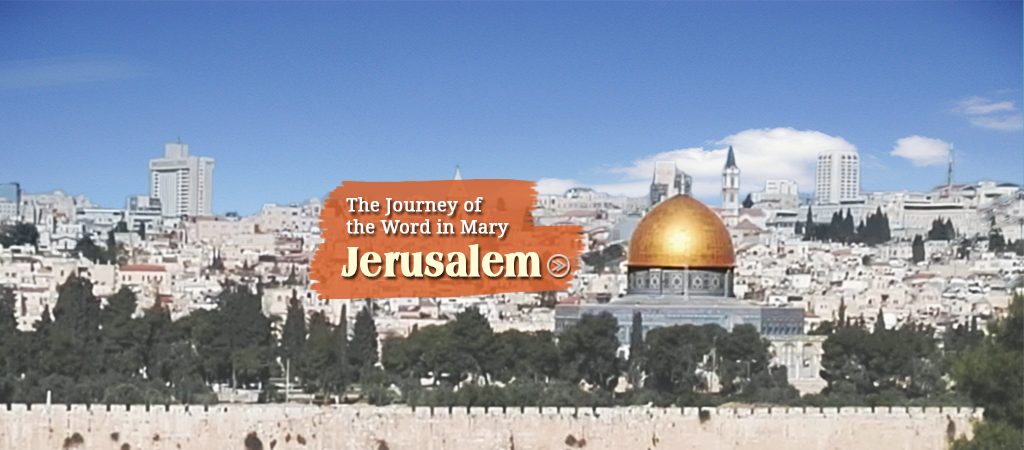After having moved through the streets of Nazareth in fresh, verdant Galilee, and from there journeyed south to Ain Karem and Bethlehem in dusty, sun-baked Judea, the travels of the Word come to a halt in Jerusalem (the Hebrew word Yerûšälaºim means “city of peace” and its Arabic counterpart, al-Quds, means “holy city”).
The best view of the city from both the geographical and spiritual standpoints is from the Mount of Olives, separated from Jerusalem by the Kidron Valley. The Kidron, which gives its name to the valley, is a Palestinian wadi that starts north of Jerusalem and ends at the Dead Sea. Reference to this valley is found only in the Gospel of John: “Jesus went out with his disciples across the Kidron Valley (the Hebrew word Qidrôn, from the verb qādar, means “murky,” “dark”) to a place where there was a garden, which he and his disciples entered” (Jn. 18:1). Thus between Jerusalem and the Mount of Olives lies a dark valley that has to be crossed….
Who knows how many times Mary and Joseph took Jesus to Jerusalem!
Luke states with great exactness: “Each year his parents went to Jerusalem for the feast of the Passover” (Lk. 2:41). As pilgrims, they had the moving experience of entering the Holy City with the name of God on their lips: “At last our feet are standing at your gates, Jerusalem! To it the tribes go up, as was decreed for Israel, to give thanks to the name of the Lord” (Ps. 122: 2-4). And yet it is precisely in Jerusalem that the Word of God becomes incomprehensible, mysterious, cutting, ambiguous and obscure.
That young Israelite woman, who preserved in her heart all the memories of an existence inhabited by Mystery, was literally thrown into the dark valley of anguish. After a day’s journey in the caravan going back to Galilee, the joy of celebrating the Passover was transformed into an agonizing search: “Where is Jesus?!” He was not with other members of the family or with friends.
Absence, search, crisis: an existential split. Things had changed: traditions no longer held; Jesus was now older and had freely decided to remain in Jerusalem, without explaining why. For him, the time had come to leave his family behind and confront the teachers of the Torah. For Mary and Joseph, instead, the time had come to venture beyond the known. They hastened back to Jerusalem, their hearts torn and confused: “Where is he?”
The boy’s reply, when they finally tracked him down, was not reassuring: “Why were you looking for me?”
Reality had been altered: Jesus had chosen to walk alone in the footsteps of the God of Israel; to freely and autonomously compare his ideas with the learned men of the Temple. Mary and Joseph fell apart under the pressure of loss, anguish and anxiety. They had lost Jesus and now had recovered him safe and sound. But something had changed: reality had taken on a completely new meaning, even if everything appeared to be the same as before.
The reunited family returned to Nazareth but this time, like the Magi, they followed another route–one that was more human-spiritual than geographical: the route of God.

